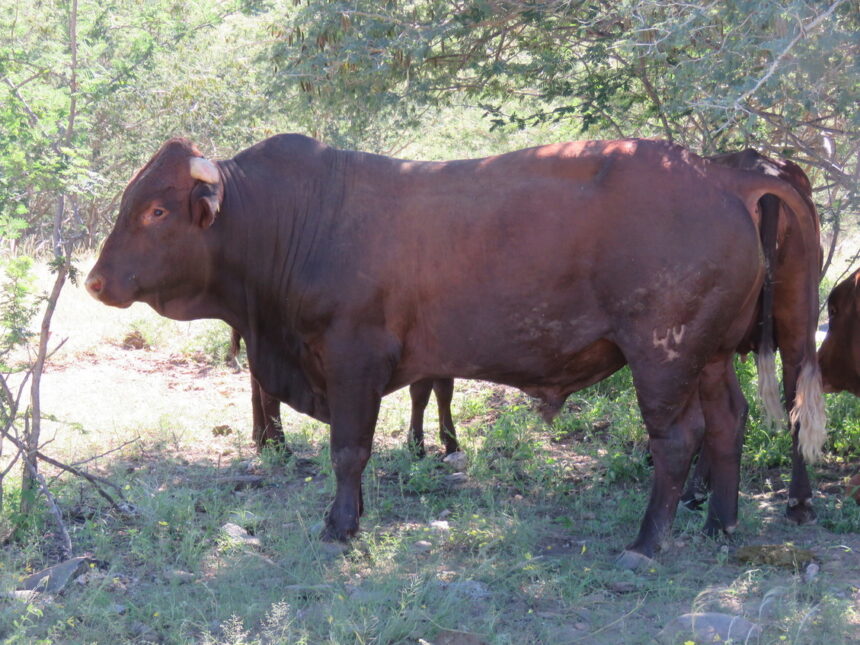Bonsmara cattle, renowned for their adaptability, fertility, and meat quality, have become a cornerstone of the South African beef industry. From their origins in the Limpopo Province to their widespread popularity across the country, Bonsmara cattle offer numerous benefits to farmers and ranchers. Whether you’re a seasoned breeder or considering venturing into cattle farming, here are ten essential things you should know about breeding and farming Bonsmara cattle in South Africa.
1. Origin and History:
Bonsmara cattle were developed in the 1930s by South African breeder Jan Bonsma, who aimed to create a breed suitable for the country’s harsh climatic conditions and diverse grazing environments. Through selective breeding involving indigenous Afrikaner, Hereford, and Shorthorn cattle, the Bonsmara breed was born, characterized by its heat tolerance, adaptability, and superior meat quality.
2. Adaptability:
One of the key attributes of Bonsmara cattle is their adaptability to various environmental conditions. They thrive in both arid and more temperate climates, making them well-suited for the diverse landscapes of South Africa. Their ability to efficiently convert forage into meat, even in harsh conditions, has made them a popular choice for extensive grazing systems.
3. Fertility and Reproduction:
Bonsmara cattle are known for their high fertility rates and excellent reproductive performance. Cows typically calve easily and have good mothering instincts, resulting in high weaning rates. This reproductive efficiency is advantageous for breeders looking to maintain or increase their herd size.
4. Growth and Meat Quality:
Bonsmara cattle are prized for their rapid growth rates and superior meat quality. They have a well-developed muscle structure, resulting in tender, flavorful beef with excellent marbling. This makes Bonsmara beef highly sought after in both local and international markets, contributing to the profitability of Bonsmara farming operations.
5. Grazing Management:
Effective grazing management is essential for maximizing the productivity of Bonsmara cattle. Rotational grazing systems can help optimize forage utilization and maintain pasture health, ensuring adequate nutrition for the herd year-round. Proper stocking rates and pasture rotation schedules are key components of successful Bonsmara farming operations.
6. Health and Disease Management:
Like any livestock, Bonsmara cattle require proper health and disease management to thrive. Vaccination programs, parasite control, and regular veterinary care are essential for preventing and managing common ailments. Additionally, maintaining herd health records and implementing biosecurity measures can help minimize the risk of disease outbreaks.
7. Breeding Strategies:
Selective breeding is fundamental to the ongoing improvement of Bonsmara cattle genetics. Breeders often use performance data such as weight gain, fertility, and meat quality to identify superior animals for breeding purposes. Artificial insemination and embryo transfer techniques are also employed to accelerate genetic progress and introduce desirable traits into the herd.
8. Marketing and Sales:
Effective marketing is crucial for selling Bonsmara cattle and their products. Breeders may participate in livestock auctions, private sales, or direct marketing channels to reach potential buyers. Highlighting the breed’s unique attributes, such as adaptability, fertility, and meat quality, can help attract customers and command premium prices.
9. Breeder Associations and Support Networks:
Bonsmara cattle breeders often belong to breed associations or support networks that provide valuable resources, information, and networking opportunities. These organizations facilitate collaboration among breeders, promote the breed’s attributes, and offer educational programs to support members in their breeding and farming endeavors.
10. Commitment to Sustainability:
Sustainable farming practices are increasingly important in the agricultural sector, and Bonsmara breeders are no exception. Many farmers prioritize environmentally friendly practices such as rotational grazing, soil conservation, and water management to minimize their ecological footprint and ensure the long-term viability of their operations.
Breeding and farming Bonsmara cattle in South Africa offer numerous opportunities for livestock producers seeking a resilient, productive, and profitable enterprise. By leveraging the breed’s adaptability, fertility, and meat quality, farmers can create sustainable and successful operations that contribute to the country’s thriving beef industry. Whether you’re a seasoned breeder or a newcomer to the world of cattle farming, Bonsmara cattle present a compelling opportunity to unlock the potential of South Africa’s agricultural landscape.
Join 'Farmers Mag' WhatsApp Channel
Get the latest Farming news and tips delivered straight to your WhatsApp
CLICK HERE TO JOIN






